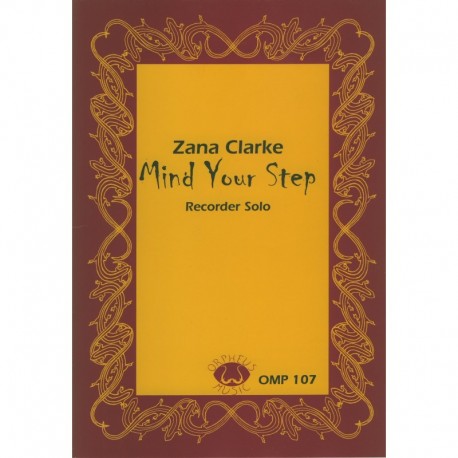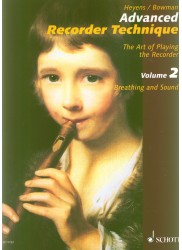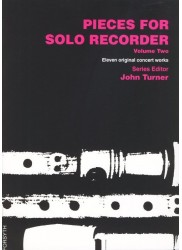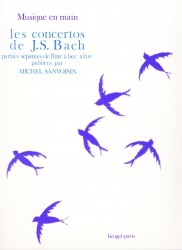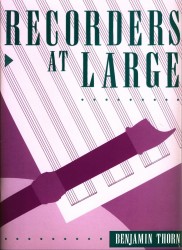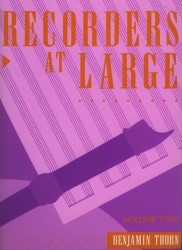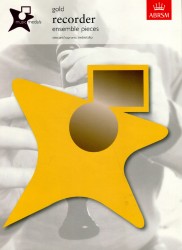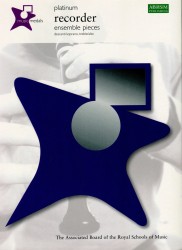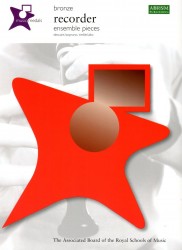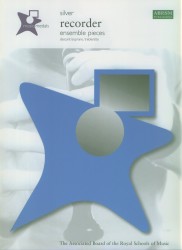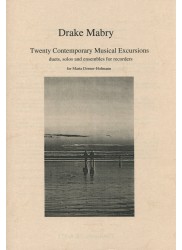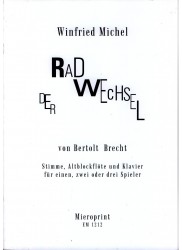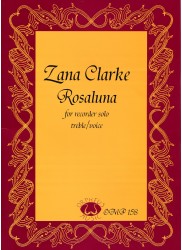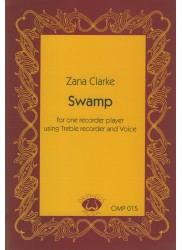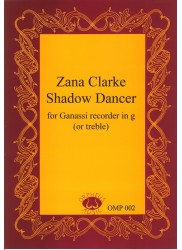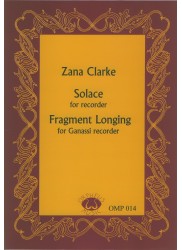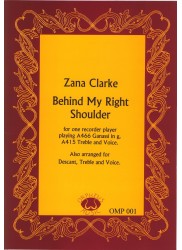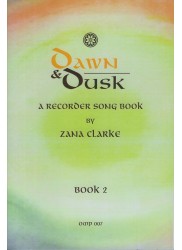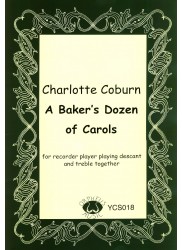No products
Prices are tax included
Mind Your Step
Composer: Clarke - Zana
Instrumentation: Treble
Period/genre: Australian Contemporary
Grade: Difficult - Very Difficult
More info
*Contemporary Piece.* Fun funky rhythmic piece in quasi-minimalist style. Makes some use of singing into instrument.
1. Mind Your Step
_Part 5 pp._
OMP107 Zana Clarke Mind your Step for recorder solo
OMP108 Zana Clarke Mind your Step for recorder quartet
The notion behind these two linked works is an announcement heard by the composer at the end of a moving walkway at Amsterdam Schiphol airport, exhorting pedestrians to mind their step as they come off the walkway. The inflection of a falling fourth given to the last word by the female voice inspired this composition. It exists in three versions, first for recorder solo, then reworked as a guitar duet and finally as a version for recorder quartet. Only the first and third versions are available for discussion here, although it would be interesting to see how the material transmutes to the guitar duet format.
The recorder solo version OMP107 is written for alto and voice. The voice part is described as preferably for a female player, although a male player playing on a bass recorder is also a suggested possibility. The vocal part is present throughout the work, largely in union or octaves with the recorder except for a few passages where dissonance briefly occurs, and several where the actual words "mind you step" are sung. After these three crotchets with their falling fourth, the rest of the material is made of syncopated quaver and crotchet patterns bouncing, for the most part, around the fourth and its inversions. The use of so much doubling with the voice becomes rather a surfeit after a while. It is like feeding your dinner guests foie gras as the main course. One gets the impression that the listener would soon tire of the unvaried timbre. Similarly, the sung text "mind your step" is a vaguely amusing idea, but not really of enough significance to justify this level of development. In the end it is too easy for this motif to sound rather precious, and this, combined with somewhat minimal musical material makes it rather hard to recommend this version for performance.
In the quartet version OMP108 the vocal parts do not feature throughout the work and 'mind your step' text is absent, although the piece is still based on the same falling fourth motif. However, treated in a purely abstract way, as here, the effect is more satisfactory. Additionally, although the overall feel of the piece is the same, the work is transposed to accommodate the quartet tessituras and the addition of an harmonic level to the composition makes for a far more interesting listening experience as the motivic material justifies development when treated on more levels than the merely melodic. The minimalist effect is still present, but the interaction of parts adds a distinct extra dimension. Technically neither of these works is particularly difficult, although the solo version requires more vocal ability and accuracy than many works using this device. Even in the quartet version, one would have to wonder about the extent to which the voice-and-recorder-in-unison feature occurs, less frequently as it is than in the solo version. Overall the quartet version is a more interesting exploration of the material, and, with imagination, could make for an effective concert piece of not too great a difficulty.
Peter Wells, The Recorder Magazine, Winter 2003
30 other products in the same category:
Reference: ED9762
Brand: Schott
Advanced Recorder Technique: The Art of Playing the Recorder Vol 2: Breathing...
Composer: Heyens/Bowman Instrumentation: Treble Grade: Moderate - Difficult
In StockReference: N2483
Brand: Noetzel
Ornamentation made easy
Composer: Roelcke - Christa Period/Genre: Baroque Grade: Difficult
In StockReference: ED9401
Brand: Schott
Blockflotentechnik Intensiv
Composer: Heyens - Gudrun Instrumentation: Treble Grade: Moderate -...
In StockReference: FZZ04
Brand: Forsyth
Pieces for Solo Recorder Volume 2: Eleven Original Concert Works
Composer: Various (See below) Instrumentation: Descant/Treble/Tenor...
In StockReference: HE32394
Brand: Alfonse Leduc
Les Concertos De JS Bach
Composer: Bach - Johann Sebastian Arranger: Michel Sanvoisin...
In StockReference: BT001
Brand: Currency Press
Recorders at Large Vol 1
Composer: Thorn - Benjamin Instrumentation: Descant/Treble Period/genre:...
In StockReference: BT002#
Recorders at Large Vol 2
Composer: Thorn - Benjamin Instrumentation: Descant/Treble Period/genre:...
In StockReference: 9781860966057
Brand: ABRSM
Music Medals: Gold Recorder Ensemble Pieces
Composer: ABRSM Instrumentation: Descant/Treble - various combinations...
In StockReference: 9781860966064
Brand: ABRSM
Music Medals: Platinum Recorder Ensemble Pieces
Composer: ABRSM Instrumentation: Descant/Treble - various combinations...
In StockReference: 9781860966033
Brand: ABRSM
Music Medals: Bronze Recorder Ensemble Pieces
Composer: ABRSM Instrumentation: Descant/Treble - various combinations...
In StockReference: 9781860966040
Brand: ABRSM
Music Medals: Silver Recorder Ensemble Pieces
Composer: ABRSM Instrumentation: Descant/Treble - various combinations...
Out of stockReference: FEA171
Brand: Flautando Edition
Twenty Contemporary Musical Excursions
Composer: Mabry - Drake Instrumentation: Treble/2 Trebles/3 Trebles...
In StockReference: EM1212
Der Rad Wechsel
Composer: Michel - WinfriedInstrumentation: 2 Descants - Treble - Tenor - 2...
In StockReference: OMP012
Brand: Orpheus Music
Dawn and Dusk Book 1
Composer: Clarke - Zana Instrumentation: Descant - Treble Period/genre:...
In StockReference: OMP012.pdf
Brand: Orpheus Music
Dawn and Dusk Book 1
PLEASE NOTE - DOWNLOADABLE PDF VERSION Composer: Clarke - Zana...
$22.00 -20%In StockReference: OMP158
Brand: Orpheus Music
Rosaluna
Composer: Clarke - Zana Instrumentation: Treble - Voice - one player...
In StockReference: OMP158.pdf
Brand: Orpheus Music
Rosaluna
PLEASE NOTE - DOWNLOADABLE PDF VERSION Composer: Clarke - Zana...
$13.00 -20%In StockReference: OMP015
Brand: Orpheus Music
Swamp
Composer: Clarke - Zana Instrumentation: Treble - Voice - one player...
In StockReference: OMP015.pdf
Brand: Orpheus Music
Swamp
PLEASE NOTE - DOWNLOADABLE PDF VERSION Composer: Clarke - Zana...
$13.00 -20%In StockReference: OMP002
Brand: Orpheus Music
Shadow Dancer
Composer: Clarke - Zana Instrumentation: Treble Period/genre: Australian...
In StockReference: OMP002.pdf
Brand: Orpheus Music
Shadow Dancer
PLEASE NOTE - DOWNLOADABLE PDF VERSION Composer: Clarke - Zana...
$13.00 -20%In StockReference: OMP014
Brand: Orpheus Music
Fragment Longing/Solace
Composer: Clarke - Zana Instrumentation: Treble Period/genre: Australian...
In StockReference: OMP014.pdf
Brand: Orpheus Music
Fragment Longing/Solace
PLEASE NOTE - DOWNLOADABLE PDF VERSION Composer: Clarke - Zana...
$13.00 -20%In StockReference: OMP107.pdf
Brand: Orpheus Music
Mind Your Step
PLEASE NOTE - DOWNLOADABLE PDF VERSION Composer: Clarke - Zana...
$14.50 -20%In StockReference: OMP001
Brand: Orpheus Music
Behind My Right Shoulder
Composer: Clarke - Zana Instrumentation: Descant/Treble + Voice...
In StockReference: OMP007
Brand: Orpheus Music
Dawn and Dusk Book 2
Composer: Clarke - Zana Instrumentation: Descant/Treble Period/genre:...
In StockReference: OMP007.pdf
Brand: Orpheus Music
Dawn and Dusk Book 2
PLEASE NOTE - DOWNLOADABLE PDF VERSION Composer: Clarke - Zana...
$22.00 -20%In StockReference: OMP001.pdf
Brand: Orpheus Music
Behind My Right Shoulder
PLEASE NOTE - DOWNLOADABLE PDF VERSION Composer: Clarke - Zana...
$17.50 -20%In StockReference: YCS018
Brand: Orpheus Music
A Baker's Dozen of Carols
Composer: Coburn - Charlotte Instrumentation: Descant - Treble (played...
In StockReference: YCS018.pdf
Brand: Orpheus Music
A Baker's Dozen of Carols
PLEASE NOTE - DOWNLOADABLE PDF VERSION Composer: Coburn - Charlotte...
$14.50 -20%In Stock

